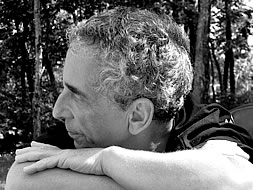If you can’t tell I’m really enjoying this new website. TED is about bringing together some of the greatest minds. They all get just 20 minutes to talk. This guy talks about choice and how having too many choices is actually a bad thing. He also says there are good parts about many choices but he challenges this way of thinking. I love it when someone asks me to think differently than I normally do. I may not stay there but most certainly expands my mind.
Speakers Barry Schwartz: Psychologist

Barry Schwartz studies the relationship between economics and psychology, delivering startling insights into modern life. His latest book, The Paradox of Choice, argues that the abundance of choice in today’s western world leads not to happiness but psychological distress.
Why you should listen to him:
In his 2004 book The Paradox of Choice , Barry Schwartz tackles one of the great mysteries of modern life: Why is it that societies of great abundance — where individuals are offered more freedom and choice (personal, professional, material) than ever before — are now witnessing a near-epidemic of depression?Conventional wisdom tells us that greater choice is for the greater good, but Schwartz argues the opposite: He makes a compelling case that the abundance of choice in today’s western world is actually making us miserable.
Infinite choice is paralyzing, Schwartz argues, and exhausting to the human psyche. It leads us to set unreasonably high expectations, question our choices before we even make them and blame our failures entirely on ourselves. His relatable examples, from consumer products (jeans, TVs, salad dressings) to lifestyle choices (where to live, what job to take, who and when to marry), underscore this central point: Too much choice undermines happiness.
Schwartz’s previous research has addressed morality, decision-making and the varied inter-relationships between science and society. Before Paradox he published The Costs of Living, which traces the impact of free-market thinking on the explosion of consumerism — and the effect of the new capitalism on social and cultural institutions that once operated above the market, such as medicine, sports, and the law.
Both books level serious criticism of modern western society, illuminating the under-reported psychological plagues of our time. But they also offer concrete ideas on addressing the problems, from a personal and societal level.
“Whether choosing a health-care plan, choosing a college class or even buying a pair of jeans, Schwartz shows that a bewildering array of choices floods our exhausted brains, ultimately restricting instead of freeing us.”